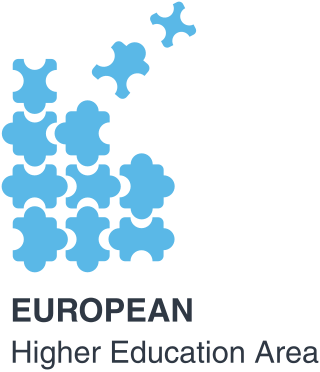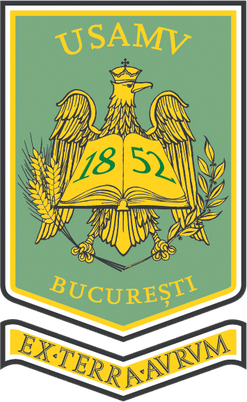Related Research Articles
An academic degree is a qualification awarded to a student upon successful completion of a course of study in higher education, usually at a college or university. These institutions often offer degrees at various levels, usually divided into undergraduate and postgraduate degrees. The most common undergraduate degree is the bachelor's degree, although some educational systems offer lower-level undergraduate degrees such as associate and foundation degrees. Common postgraduate degrees include engineer's degrees, master's degrees and doctorates.

A master's degree is a postgraduate academic degree awarded by universities or colleges upon completion of a course of study demonstrating mastery or a high-order overview of a specific field of study or area of professional practice. A master's degree normally requires previous study at the bachelor's level, either as a separate degree or as part of an integrated course. Within the area studied, master's graduates are expected to possess advanced knowledge of a specialized body of theoretical and applied topics; high order skills in analysis, critical evaluation, or professional application; and the ability to solve complex problems and think rigorously and independently.
A bachelor's degree or baccalaureate is an undergraduate degree awarded by colleges and universities upon completion of a course of study lasting three to six years. The two most common bachelor's degrees are the Bachelor of Arts (BA) and the Bachelor of Science. In some institutions and educational systems, certain bachelor's degrees can only be taken as graduate or postgraduate educations after a first degree has been completed, although more commonly the successful completion of a bachelor's degree is a prerequisite for further courses such as a master's or a doctorate.
The European Credit Transfer and Accumulation System (ECTS) is a standard means for comparing academic credits, i.e., the "volume of learning based on the defined learning outcomes and their associated workload" for higher education across the European Union and other collaborating European countries. For successfully completed studies, ECTS credits are awarded. One academic year corresponds to 60 ECTS credits that are normally equivalent to 1500–1800 hours of total workload, irrespective of standard or qualification type. ECTS credits are used to facilitate transfer and progression throughout the Union. ECTS also includes a standard grading scale, intended to be shown in addition to local standard grades.

The Bologna Process is a series of ministerial meetings and agreements between European countries to ensure comparability in the standards and quality of higher-education qualifications. The process has created the European Higher Education Area under the Lisbon Recognition Convention. It is named after the University of Bologna, where the Bologna declaration was signed by education ministers from 29 European countries in 1999. The process was opened to other countries in the European Cultural Convention of the Council of Europe, and government meetings have been held in Prague (2001), Berlin (2003), Bergen (2005), London (2007), Leuven (2009), Budapest-Vienna (2010), Bucharest (2012), Yerevan (2015), Paris (2018), and Rome (2020).

The European Higher Education Area (EHEA) was launched in March 2010, during the Budapest-Vienna Ministerial Conference, on the occasion of the 10th anniversary of the Bologna Process.
The Lisbon Recognition Convention, officially the Convention on the Recognition of Qualifications concerning Higher Education in the European Region, is an international convention of the Council of Europe elaborated together with the UNESCO. This is the main legal agreement on credential evaluation in Europe.
A Master of Advanced Studies or Master of Advanced Study is a postgraduate degree awarded in various countries. Master of Advanced Studies programs may be non-consecutive programs tailored for "specific groups of working professionals with well-defined needs for advanced degree work" or advanced research degrees. With the exception of the several schools in the UK, advanced studies programs tend to be interdisciplinary and tend to be focused toward meeting the needs of professionals rather than academics. The Master of Advanced Studies is also often referred as Executive Master because it is aimed at working professionals
An engineer's degree is an advanced academic degree in engineering which is conferred in Europe, some countries of Latin America, North Africa and a few institutions in the United States. The degree may require a thesis but always requires a non-abstract project.
A Diplom is an academic degree in the German-speaking countries Germany, Austria, and Switzerland and a similarly named degree in some other European countries including Albania, Bulgaria, Belarus, Bosnia and Herzegovina, Croatia, Estonia, Finland, Poland, Russia, and Ukraine and only for engineers in France, Greece, Hungary, North Macedonia, Romania, Serbia, Slovenia, and Brazil.

The University of Agronomic Sciences and Veterinary Medicine of Bucharest is the oldest and largest institution of higher agricultural sciences and veterinary education in Romania. With around 12,000 students, the university offers 32 undergraduate programmes and 33 master programmes; all are available in Romanian, 6 in English, and 1 in French. Furthermore, there are also two doctoral schools specialised in five fields: Agronomy, Animal Science, Biotechnologies, Horticulture, and Veterinary Medicine.
Master's degrees in Europe are the second cycle of the Bologna process, following on from undergraduate bachelor's degrees and preceding third cycle doctorates. Master's degrees typically take two years to complete, although the number of years varies between countries, and correspond to 60 – 120 ECTS credits. Within the European Higher Education Area, representing almost all countries in Europe, master's degrees are referenced to the Framework of Qualifications for the European Higher Education Area and national qualifications frameworks.
The Validation or recognition of foreign studies and degrees is the process whereby a competent authority in one country formally recognises the value of a qualification from a foreign country. This can entail total or partial validation of foreign university and non-university studies, degrees and other qualifications. Particularly within Europe, this is covered by a number of international conventions and agreements.
The European Qualifications Framework (EQF) acts as a translation device to make national qualifications more readable across Europe, promoting workers' and learners' mobility between countries and facilitating their lifelong learning. The EQF aims to relate different countries' national qualifications systems to a common European reference framework. Individuals and employers will be able to use the EQF to better understand and compare the qualifications levels of different countries and different education and training systems. Since 2012, all new qualifications issued in Europe carry a reference to an appropriate EQF level.
The Chemistry Quality Eurolabels or European Quality Labels in Chemistry is a marketing scheme for chemistry degrees at institutions located within the 45 countries involved in the Bologna process. Labels are awarded to qualifying institutions under the names are Eurobachelor and Euromaster, as well as the proposed Eurodoctorate. Label Committee not only prepares for the ECTN Administrative Council proposals to award the Eurolabels but also judge the quality of chemical education programmes at HEIs. ECTN and its Label Committee closely collaborates with EuCheMS and American Chemical Society.
Qualifications Frameworks in the European Higher Education Area (QF-EHEA) are frameworks describing the higher education qualifications of countries participating in the Bologna Process. National Qualifications Frameworks (NQFs) provide a mapping between higher education qualifications and an overarching framework, allowing the cross-comparison of qualifications from different countries.

Candidate is the name of various academic degrees, which are today mainly awarded in Scandinavia. The degree title was phased out in much of Europe through the 1999 Bologna Process, which has re-formatted academic degrees in Europe.
Open educational resources (OER) are learning materials that reside in the public domain or have been released under an intellectual property license that permits their free use and re-purposing by others. OER policies are adopted by governments, institutions or organisations in support of the creation and use of open content, specifically open educational resources (OER), and related open educational practices.
A First Prize diploma in music is a high honor Diploma of Musical Studies, typically in performance or composition. It is awarded by European music conservatories and European-styled conservatories elsewhere. A First Prize diploma does not denote first in class, but rather, a very high level of artist proficiency. The typical period of study to earn a First Prize is one to two years. A First Prize diploma is sometimes wrongly described as being similar to a master's degree in music performance or composition. As of the mid-1990s, the degree in many European countries has been discontinued.
References
- ↑ Bologna declaration Archived 31 March 2022 at the Wayback Machine magna-charta.org
- ↑ Directorate-General for Education, Youth (23 June 2015). "ECTS users' guide 2015". Publications Office of the European Union. Retrieved 23 June 2023– via Publications Office of the European Union.
- ↑ Lorenz on the Bologna Process. Questions have also been posed, e.g. by Prof. Hauke Bronckhorst, as to the democratic legitimacy of the Bologna Process.
- ↑ "Making the Most of Our Potential: Consolidating the European Higher Education Area – Bucharest Communiqué"